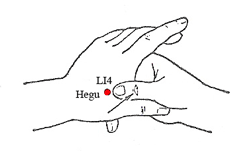Pregnancy is an exciting yet confusing period for expectant mothers. This is because the body undergoes many changes. A lot of first time mothers are unsure about the body changes to expect and this could lead to a lot of confusion and anxiety. One of the major changes that takes place is a rise in body temperature.
The best time to identify your average basal body temperature (BBT) is in the morning before you leave bed. There are three ways to monitor your BBT and these are through the rectum, vagina or mouth. For consistent results, you should take your BBT daily at the same time. That said, the average basal temperature for humans is 98.6º F. Read on to learn how your body temperature changes during pregnancy and what you can do about it.
Body Temperature During Pregnancy
If you notice a rise in your BBT two weeks after ovulation, chances are high that you have conceived. This is one of the first signs of pregnancy even before the missed period sign. Although pregnancy affects the BBT, this is only experienced during the first trimester.
Causes of Rise in Body Temperature During Pregnancy
Why does your temperature rise? Well, this could be due to two reasons. The first is an increase in your metabolic rate. The body naturally recognizes that it now has to take care of two and it increases its normal activity thus leading to a higher body temperature. Another reason is the hormonal changes that occur in the woman’s body. These hormonal changes lead to effects similar to hot flushes which increase the BBT.
How High Does the Body Temperature During Pregnancy Rise?
The rise is however not too high and on average your BBT will only rise by 0.4ºF. If for example your average BBT is 98.6ºF, it would rise to 99ºF and this rise could continue for the first few months of pregnancy. If you do not conceive, your temperature will go down to normal during menstruation.
Other Considerations
A rise in body temperature could also be a sign of sickness. If you notice the rise in your BBT and begin to feel as though you are coming down with illness, you need to call your doctor.
Sometimes, your body temperature could be due to lifestyle changes and the activities you partake while pregnant. Insomnia, stress, exercise, caffeinated beverages and hot humid weather all could increase your body temperature.
How to Get Relief
You can avoid overheating by staying away from hot, humid environments such as saunas and hot tubs. Also dress in clothes that allow proper circulation of air and exercise in areas that have proper ventilation as well. Avoid caffeinated drinks such as coffee and you can take up activities such as yoga to ease stress.
Warning: When to See a Doctor
Watch out for extremely high temperature changes. A fever that exceeds 101ºF (or 38 degrees Celsius) should be cause for concern while pregnant. It could be a symptom of an infection and this could affect your unborn child.
A fever that is accompanied by symptoms such as joint pain and rashes could be a sign of parvovirus, toxoplasma and cytomegalovirus (CMV). CMV can be dangerous and it is one of the major causes of congenital deafness. Unfortunately, it is not uncommon and it is important that you seek immediate medical attention when you experience flu-like symptoms, respiratory problems and joint aches. Also, get your annual flu vaccine.







